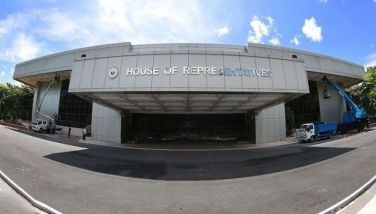Dialogue sought for ratification of Basel amendment
MANILA, Philippines - Environmentalists are seeking a dialogue with Malacañang officials to obtain support for the ratification of the Basel Ban Amendment.
The amendment revises the Basel Convention, a global environmental treaty seeking to prohibit exports of hazardous wastes from developed to developing countries for final disposal, reuse, recycling and recovery.
The environment groups are engaged in talks with the Office of the Executive Secretary represented by Undersecretary Ronald Geron.
Ang NARS Rep. Leah Paquiz and EcoWaste Coalition’s Coordinator Aileen Lucero have requested Malacañang to work for the expeditious ratification of the Basel Ban Amendment during the remaining days of the Aquino administration.
“While the Philippines ratified the Basel Convention in 1993, our country has yet to ratify the Basel Ban Amendment that is meant to fix the recycling loophole in the treaty. By ratifying it, we protect our country from turning into a convenient dumping ground for hazardous wastes and other wastes masquerading as recyclables,” said Paquiz.
Lucero said current laws are not strong enough to shield the country from hazardous waste traders overseas in search for cheap disposal options in developing countries like the Philippines.
“The Canadian dumping scandal serves as a stark reminder of the insufficiency of our laws and the need for a stronger defense against the smuggling of wastes and toxics that could be better managed in exporting countries,” she said.
The ratification of the Basel Ban Amendment could form part of the Aquino presidency’s “environmental justice” legacy benefitting generations of Filipinos, environmentalists told Geron.
The Philippines has not ratified the amendment, according to the country fact sheet submitted by the Department of Environment and Natural Resources to the Basel Convention Secretariat.
“It has economic impacts to local industry depending on using secondary material classified as hazardous waste under the Convention,” read the fact sheet.
Environmentalists are unconvinced about the supposed economic disadvantage of ratifying the Basel Ban Amendment.
Data on the country’s hazardous waste imports and how these are used or disposed must be gathered, disclosed and analyzed, they added.
They also cited the importance of quantifying the health, environmental and social costs of such trade in hazardous wastes and comparing these with the alleged economic benefits.
To date, 82 governments have ratified the Basel Ban Amendment, including Brunei, Indonesia and Malaysia in Southeast Asia, as well as China.
- Latest





























